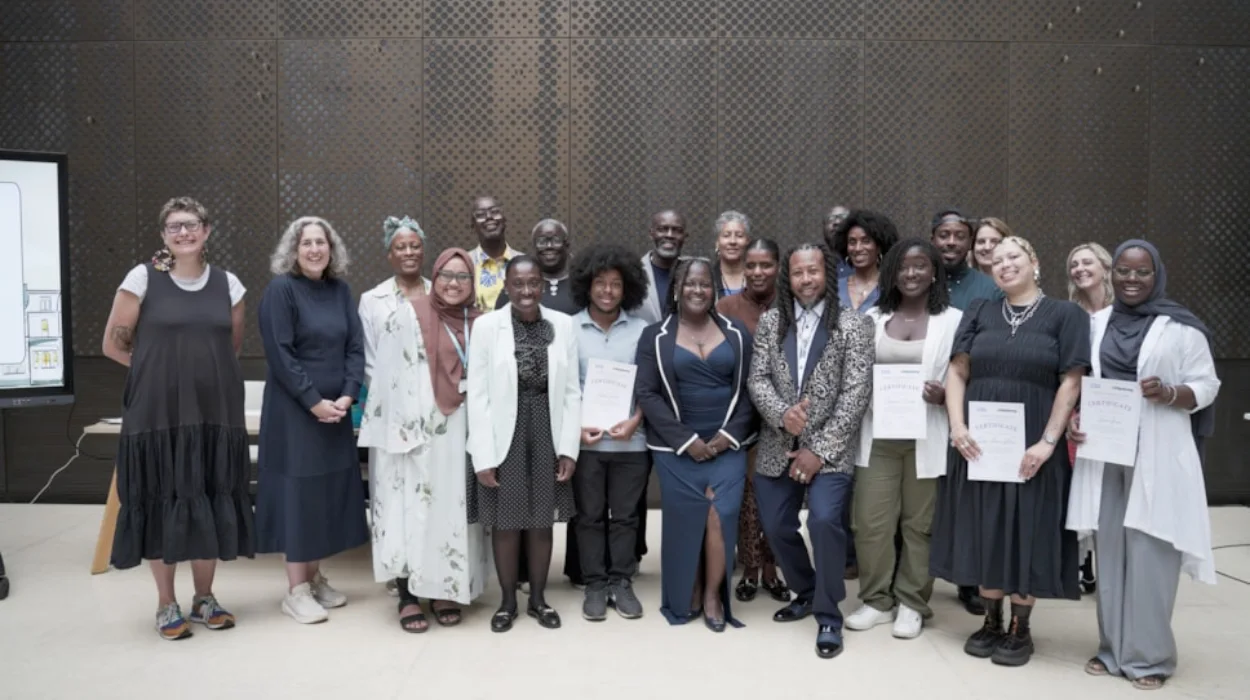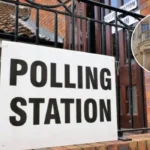Key Points
- The first phase of Hackney Thinking Spaces (HTS), a 12-month project, has concluded with a celebratory finale spotlighting achievements and delivering a slate of future recommendations.
- HTS, a partnership between Hackney Council and I Found Me Therapeutic Counselling, was established in response to systemic racism affecting Black and Global Majority communities in Hackney.
- The project provided therapeutic spaces for residents to discuss and address the emotional impact of racism on mental health.
- Statements and reflections were provided by members of the Community Advisory Board (CAB), chaired by Patrick Vernon OBE.
- The evaluation revealed positive feedback from participants regarding usefulness and inclusivity of the sessions.
- HTS has been lauded for its contribution to anti-racist practice and public health outcomes, tying into broader borough strategies for fairness and equity.
- Community-based solutions and recommendations for systemic change were presented for the next phase.
- Hackney Council and partner organisations pledged continued support and ongoing evaluation of programme impact.
With the conclusion of its inaugural 12-month run, Hackney Thinking Spaces (HTS) marked a significant milestone this week, celebrating achievements and charting a path forward for transformative social change in Hackney. The phase one finale, hosted by Hackney Council in partnership with I Found Me Therapeutic Counselling, gathered community leaders, residents, and mental health advocates to reflect on the initiative’s impact and share new policy recommendations for the borough’s future.
- Key Points
- What is Hackney Thinking Spaces and Why Was It Launched?
- How Has the Community Advisory Board Shaped the Programme?
- What Were the Major Achievements of Phase One?
- What Statements Were Made by Programme Leaders and Participants?
- How Has Hackney Thinking Spaces Influenced Broader Borough Policy?
- What Recommendations and Next Steps Emerged from the Finale?
- How Will Success Be Measured Moving Forward?
What is Hackney Thinking Spaces and Why Was It Launched?
As reported by Hackney Council’s official news desk, Hackney Thinking Spaces emerged in direct response to
“recent events of systemic racism which have profoundly impacted upon Black and Global Majority children, young people and families in Hackney.”
The initiative was purposely designed to address the urgent need for
“safe spaces for discussing and dealing with the emotional impact of systemic racism on residents’ mental health.”
According to “Working Together for a Better Hackney – Strategic Plan Report,” the council intended these spaces as a cornerstone of its anti-racism commitment, public health strategy, and transformative service delivery.
HTS sessions were facilitated by I Found Me Therapeutic Counselling, which
“focuses on providing support for the diverse needs of the communities they serve.”
The project ran for 12 months, starting April 2024, and targeted Black and Global Majority residents by providing group therapy sessions helmed by skilled therapists.
How Has the Community Advisory Board Shaped the Programme?
As outlined by Patrick Vernon OBE on his website and corroborated in official council materials, the Community Advisory Board (CAB) was integral to shaping HTS. Comprising residents and local leaders—including Alanis Hernandez, Joseph Dixon, Angie Brooks, and Dr Audrey Allwood—the CAB oversaw the programme, evaluated its progress, and facilitated the development of community-based solutions to systemic racism and trauma.
Patrick Vernon, quoted on the council’s site, explained,
“The Community Advisory Board is a driver for real change, ensuring the voices of Hackney’s Black and Global Majority communities are at the centre of the conversation and action.”
The CAB’s objectives included amplifying lived experience, steering policy recommendations, and influencing system-wide service improvements.
What Were the Major Achievements of Phase One?
According to the summary by Hackney Council and supporting strategic planning reports, HTS delivered tangible and measurable achievements:
- Provided regular, safe, and accessible therapeutic group sessions for Black and Global Majority residents.
- Led training and workshops for health and council practitioners on culturally appropriate mental health interventions.
- Supported participants of all abilities, ensuring reasonable adjustments were made for access.
- Developed community-informed action points and maintained ongoing evaluation for accountability.
- Launched public and stakeholder surveys to measure satisfaction and outcomes for participants.
- Enabled collaboration among organisations, fostering new connections and partnerships in the borough.
The “Working Together for a Better Hackney” strategy noted the programme’s role in
“promoting culturally appropriate mental health interventions and aligned anti-racist training for practitioners, including through Growing Minds,”
and highlighted that
“coordinated programmes now tackle structural and systemic inequality in local mental health services.”
Additionally, the evaluation of contextual safeguarding in Hackney showed reductions in out-of-borough placements and improved outcomes for vulnerable youth—a system-wide benefit credited, in part, to community-led initiatives like HTS.
What Statements Were Made by Programme Leaders and Participants?
During the finale, as reported by the council’s official news and confirmed by leaders involved, multiple statements acknowledged the collective effort behind HTS:
- Patrick Vernon OBE, Chair of the CAB, in a prepared statement reported by Hackney Council, said: “The true success of Hackney Thinking Spaces lies in the power of lived experience and openness to change. We’ve collectively shown what is possible when communities lead the way in shaping trauma-informed, anti-racist mental health services.”
- A participant testimony shared through CAB review material, as quoted by I Found Me Counselling: “In these spaces I finally felt heard about what I face day-to-day as a Black woman in Hackney. It’s helped me heal, but also let me see that I can help change things for my kids.”
Members of the Community Advisory Board further referenced the need for system-wide listening and partnership, with one representative urging,
“Collaborative approaches and real resourcing are needed if the council is to be accountable and deliver on these recommendations.”
How Has Hackney Thinking Spaces Influenced Broader Borough Policy?
According to
“Working Together for a Better Hackney – Strategic Plan Report,”
HTS is a component of the borough’s wider anti-racist and fairness strategies. The project is referenced in annual council performance documents as evidence of Hackney’s evolving approach to community engagement, public health improvement, and economic development.
The borough now prioritises “co-designing solutions with residents,” driving “a fairer economic recovery” and “tackling inequality” with accountability for results. HTS is respected for its capacity to “highlight the importance of mental health alongside anti-racism efforts,” noted as a model for how public services can enhance responsiveness to community needs.
What Recommendations and Next Steps Emerged from the Finale?
As revealed at the phase one finale, Hackney Thinking Spaces made several recommendations for future action:
- Maintain and expand group sessions targeting underrepresented residents.
- Further embed trauma-informed and anti-racist training across borough services.
- Commit to ongoing, independent evaluation to ensure progress and transparency.
- Expand the role of the Community Advisory Board in influencing borough-wide policies.
- Invest more in community-based project resourcing, reducing reliance on volunteer labour to ensure sustainability.
- Share successful approaches with other London boroughs to broaden the impact of the HTS model.
In closing remarks, a council spokesperson cited on the official news update said:
“We are committed to learning from the insights of Hackney Thinking Spaces—ensuring the project’s legacy influences future service design, and that the meaningful participation of our diverse communities continues to shape decision-making.”
How Will Success Be Measured Moving Forward?
Evaluation remains central to the project’s ethos. Hackney Council and I Found Me Therapeutic Counselling pledged to continue gathering data via participant and community surveys, outcome analysis, and stakeholder feedback, with findings to be shared in public forums. Key performance indicators include session usefulness, accessibility, participant satisfaction, and responsiveness of service providers to community-led solutions.
The council confirmed plans to integrate HTS learning into borough-wide transformation plans, with regular public reporting and community oversight via the CAB.
Through collective action, open dialogue, and the lived expertise of residents, Hackney Thinking Spaces’ first phase has set a benchmark for tackling systemic racism and mental health inequalities at the community level. The programme’s recommendations now form a blueprint for systemic change, with elected leaders and grassroots advocates alike pledging to see this crucial work through to deeper and more permanent impact.



